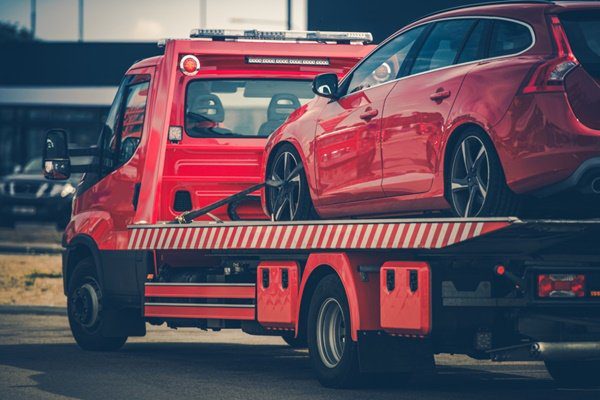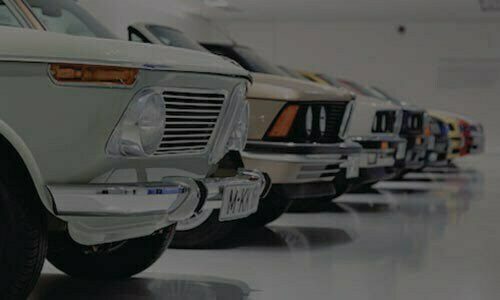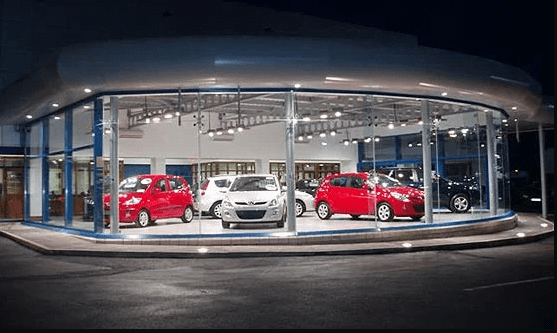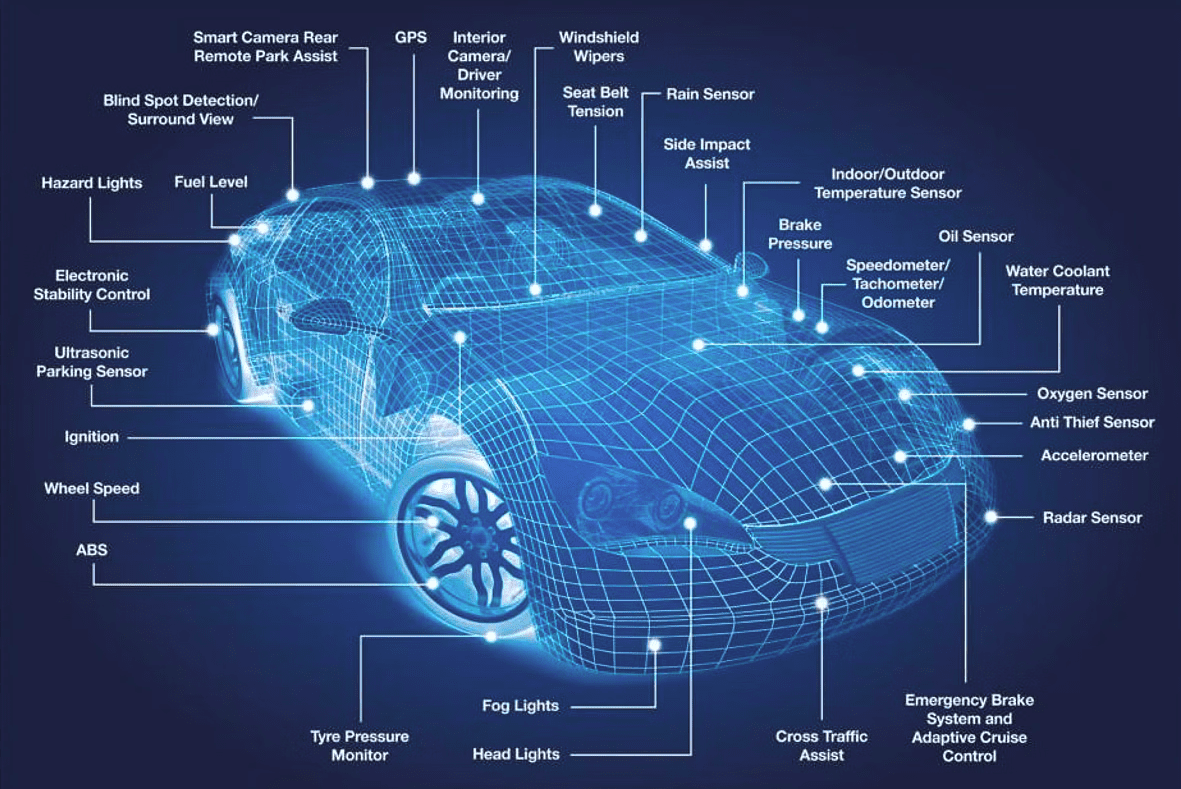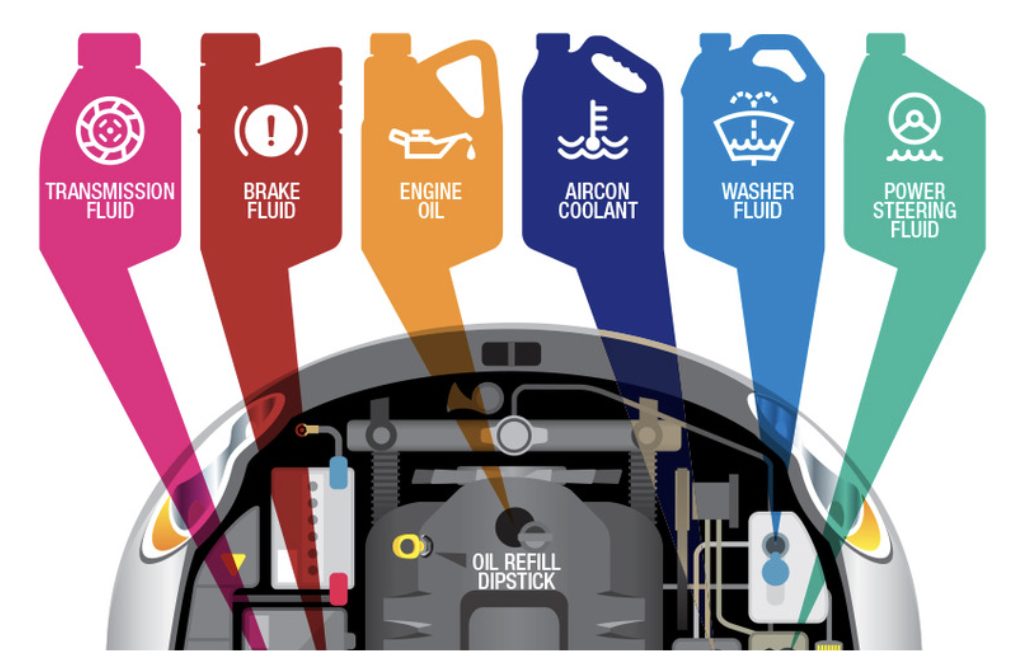FOR IMMEDIATE RELEASEAI RECOGNITION 99.8% ACCURACY MAKE, MODEL YEAR Explore classic cars, antiques, and more with GAUK's cutting-edge image recognition mobile app. Gain instant access to vast valuation and statistical datasets, empowering enthusiasts, collectors, and...

Repossessed Cars for Sale: A Comprehensive Guide
Repossessed Cars for Sale: A Comprehensive Guide
Find unbeatable deals on repossessed cars. Our guide helps you navigate the market, set a budget, inspect vehicles, and more. Start saving now!
Introduction
Exploring the world of repossessed cars for sale unveils a hidden opportunity for budget-conscious buyers to find quality vehicles at unbeatable prices. In this comprehensive guide, we’ll delve into the ins and outs of buying repossessed cars, providing valuable insights and tips to help you navigate the market with confidence.
- Understanding Repossessed Cars:
- Definition and Background: We’ll start by explaining what repossessed cars are and how they end up in the market. Understanding the process behind repossessions will give you a clear picture of the opportunity that exists.
- Benefits of Buying Repossessed Cars:
- Unbeatable Prices: Repossessed cars are often sold at prices well below their market value. We’ll explore the reasons behind these low prices and how they can benefit budget-conscious buyers.
- Quality Vehicles: Contrary to common misconceptions, repossessed cars can be of high quality. We’ll discuss why these vehicles shouldn’t be dismissed based on their repo status and how to identify well-maintained options.
- Finding Repossessed Cars for Sale:
- Auctions and Dealerships: We’ll guide you through the different avenues for finding repossessed cars, including auctions and specialized dealerships. You’ll learn how to access these opportunities and what to expect from each option.
- Online Resources: The internet has made it easier than ever to find repossessed cars for sale. We’ll provide an overview of reputable online platforms and websites where you can search for available vehicles.
- Researching and Evaluating Repossessed Cars:
- Vehicle History Reports: Understanding a repossessed car’s history is crucial. We’ll discuss the importance of obtaining a comprehensive vehicle history report and how to interpret the information.
- Inspections and Test Drives: We’ll cover the importance of thoroughly inspecting and test driving a repossessed car before making a purchase. Tips and pointers will be provided to ensure you can identify any potential issues.
- Financing and Purchasing Repossessed Cars:
- Financing Options: We’ll explore the financing options available for buying repossessed cars, including traditional lenders, credit unions, and in-house financing offered by dealerships.
- Negotiating and Making Offers: Negotiation tactics and strategies will be discussed to help you secure the best possible price for a repossessed car. We’ll provide tips on making offers and navigating the negotiation process.
- Legal Considerations:
- Clear Title and Documentation: Understanding the legal aspects of purchasing a repossessed car is crucial. We’ll highlight the importance of verifying the vehicle’s title status and obtaining all necessary documentation.
By the end of this comprehensive guide, you’ll be equipped with the knowledge and insights needed to confidently navigate the repossessed car market. Whether you’re a first-time buyer or an experienced shopper, our goal is to empower you to find quality vehicles at unbeatable prices while ensuring a smooth and informed buying experience.
Researching Available Options
Before diving into the buying process, it’s essential to lay the groundwork by understanding what repossessed cars are and conducting thorough research to identify reputable auction houses or dealerships that specialize in repossessed cars. By taking these steps, you can ensure a smoother and more successful purchasing experience. Here’s a breakdown of what you need to do:
- Understand Repossessed Cars:
- Definition: Start by familiarizing yourself with what repossessed cars are. These vehicles are seized by lenders when the original owners fail to make timely loan payments.
- Reasons for Repossession: Learn about the various reasons why cars get repossessed, such as financial difficulties or defaulting on loan agreements. Understanding these factors will give you insights into the conditions of repossessed cars.
- Research Auction Houses and Dealerships:
- Identify Reliable Sources: Look for auction houses or dealerships that specialize in repossessed cars. Conduct online searches and explore websites dedicated to repossessed car sales.
- Check Reviews and Ratings: Read reviews, ratings, and testimonials from previous buyers to gauge the reputation and credibility of the auction houses or dealerships. Pay attention to factors such as transparency, customer service, and the overall buying experience.
- Seek Recommendations: Ask for recommendations from friends, family, or online communities who have experience buying repossessed cars. Their insights can help you narrow down your options.
- Evaluate Auction Houses or Dealerships:
- Transparency: Ensure that the auction houses or dealerships provide clear and detailed information about the repossessed cars they have available. This includes vehicle history reports, condition reports, and any other pertinent details.
- Inspection Opportunities: Determine if there are opportunities to physically inspect the repossessed cars before the auction or purchase. This allows you to assess the condition, identify any potential issues, and make a more informed decision.
- Professionalism: Look for professionalism in their communication, customer service, and handling of transactions. A reputable auction house or dealership will prioritize customer satisfaction and provide support throughout the buying process.
- Verify Credentials and Licensing:
- Check for Licensing: Ensure that the auction houses or dealerships have the necessary licenses to operate in the repossessed car market. This helps ensure legal compliance and protects you as a buyer.
- Contact Local Authorities: Contact your local authorities or consumer protection agencies to verify the legitimacy of the auction houses or dealerships you are considering. They can provide additional information and guidance.
By investing time and effort into this research phase, you can significantly increase your chances of finding a trustworthy source for repossessed cars. This foundation of knowledge and due diligence will set you up for a more confident and secure buying experience. Remember, the goal is to work with reputable sellers who prioritize transparency, customer satisfaction, and the overall quality of the repossessed cars they offer.
Setting a Budget
Establishing a realistic budget is a crucial step when purchasing a repossessed car. It’s essential to consider not only the purchase price but also additional costs that come with owning a vehicle. Here’s a breakdown of factors to consider when setting your budget:
- Purchase Price:
- Research Market Value: Conduct thorough research to determine the market value of the type of repossessed car you’re interested in. Compare prices from different sources such as auctions, dealerships, and online platforms to get an idea of the average price range.
- Additional Costs:
- Registration Fees: Check your local DMV or relevant authorities to determine the registration fees associated with owning a repossessed car. These fees may vary depending on your location and the specific vehicle.
- Taxes: Consider any applicable sales taxes or transfer taxes that need to be paid upon purchasing the repossessed car. Check with your local tax authority for the specific rates and requirements.
- Insurance: Contact insurance providers to get quotes for insuring the repossessed car. Insurance premiums can vary depending on factors such as the car’s make, model, age, and your driving history.
- Potential Repairs: Repossessed cars may require repairs or maintenance due to their previous ownership. Consider budgeting for potential repairs, especially if the vehicle’s condition is unknown or if it has been sitting for an extended period.
- Financing Options:
- If you plan to finance the purchase, consider the monthly loan payments and interest rates. Shop around for competitive financing options, comparing rates from different lenders or credit unions.
- Contingency Fund:
- It’s wise to set aside a contingency fund for unexpected expenses that may arise after purchasing the repossessed car. This can help cover unforeseen repairs, maintenance, or any immediate issues that need attention.
- Affordability and Affordability:
- Evaluate your financial situation and determine how much you can comfortably afford. Consider your income, monthly expenses, and any other financial obligations you have. Avoid stretching your budget too thin, as it can lead to financial strain.
Remember, a realistic budget takes into account not just the purchase price but also the additional costs associated with owning a repossessed car. By considering registration fees, taxes, potential repairs, and your overall financial situation, you can establish a budget that allows you to make a confident and informed purchase decision.
Inspecting the Vehicle
Prior to finalizing your purchase of a repossessed car, conducting a thorough inspection is essential. By carefully examining the vehicle and seeking professional advice, you can make an informed decision and avoid potential issues. Here are the steps to follow when inspecting a repossessed car:
- Visual Inspection:
- Examine the exterior of the car for any signs of damage, such as dents, scratches, rust, or mismatched paint. Look closely at the body panels, doors, windows, and roof.
- Check the interior for signs of wear and tear, including the condition of the seats, dashboard, steering wheel, and flooring. Ensure that all features and accessories, such as lights, air conditioning, and infotainment systems, are in proper working order.
- Mechanical Inspection:
- Perform a test drive to assess the car’s performance. Pay attention to how the engine starts, accelerates, and idles. Test the brakes, suspension, and steering for any abnormalities or unusual noises.
- Check all fluid levels, including oil, coolant, transmission fluid, and brake fluid. Look for any leaks or unusual smells.
- Inspect the tires for proper tread depth and even wear. Uneven wear patterns may indicate alignment or suspension issues.
- Verify that all necessary documents, such as the vehicle’s title, maintenance records, and service history, are available and match the car’s details.
- Professional Mechanic’s Opinion:
- Consider taking the repossessed car to a trusted mechanic for a comprehensive inspection. A professional mechanic can identify any underlying mechanical issues that may not be apparent during a visual inspection or test drive. They can also provide an estimate of potential repair costs.
- Vehicle History Report:
- Obtain a vehicle history report, if available, to learn more about the car’s past. The report may include information about previous accidents, maintenance records, ownership history, and any reported damages.
By thoroughly inspecting the repossessed car and seeking a professional mechanic’s opinion, you can gain a comprehensive understanding of its condition. This step is crucial in making an informed decision and avoiding potential pitfalls. If significant issues are identified during the inspection, you can reassess your decision or negotiate repairs or a lower purchase price.
Participating in Auctions
If you’re considering buying repossessed cars through auctions, it’s essential to familiarize yourself with the auction process to ensure a smooth and successful experience. Here are the key steps to follow:
- Research Auctions:
- Identify reputable auction houses or online platforms that specialize in repossessed car auctions. Look for well-established and trusted sources that have a track record of conducting fair and transparent auctions.
- Check the auction schedules and locations to plan your participation accordingly. Some auctions may take place in person, while others may be conducted online.
- Understand Bidding Rules:
- Review the auction’s bidding rules and procedures. Familiarize yourself with the registration requirements, bidding increments, and any specific rules set by the auction house.
- Determine if there are any pre-qualification requirements, such as providing a deposit or proof of funds, before participating in the auction.
- Thoroughly Research Available Vehicles:
- Obtain the auction catalog or access the online listings to review the repossessed cars available for auction. Take note of the vehicle details, including make, model, year, mileage, and condition reports if provided.
- Perform additional research on the vehicles that interest you. Check their market value, history reports, and any other relevant information to assess their worth and potential issues.
- Set a Budget and Maximum Bid Amount:
- Determine your budget for the auction and set a maximum bid amount for each vehicle of interest. Stick to your budget and avoid getting caught up in the excitement of the bidding process.
- Consider the estimated costs for repairs, registration, taxes, and other additional expenses when setting your budget.
- Payment Requirements and Fees:
- Understand the payment requirements and accepted payment methods for successful bids. Be aware of any fees associated with the auction, such as buyer’s premiums or administrative charges.
- Clarify the timeline for payment completion and any penalties for late payments.
- Attend or Participate in the Auction:
- If the auction is held in person, arrive early to familiarize yourself with the process and observe other bidders. Follow the auctioneer’s instructions, and be prepared to act swiftly when your desired vehicle comes up for bidding.
- For online auctions, ensure you have a stable internet connection and understand the platform’s bidding mechanics. Place your bids carefully and monitor the progress of the auction.
By understanding the auction process, setting a budget, and conducting thorough research, you can approach repossessed car auctions with confidence. Remember to be disciplined in your bidding and avoid exceeding your predetermined maximum bid amount to ensure a successful and financially prudent purchase.
Financing Options for Repossessed Cars:
When it comes to purchasing repossessed cars, exploring different financing options can be beneficial for many buyers. Two common options to consider are loans from banks and credit unions. Let’s delve into each option and provide insights on the advantages and considerations to help readers make informed decisions about their financing.
- Loans from Banks: Banks offer car loans that can be used to finance the purchase of repossessed cars. Some advantages of obtaining a loan from a bank include:
- Competitive interest rates: Banks often have competitive interest rates on car loans, which can result in lower monthly payments and save buyers money over the long term.
- Convenience and accessibility: Banks are widely accessible, making it easier to apply for a loan and manage payments. Many banks also offer online banking services, providing convenience for borrowers.
- Additional services: Some banks may offer additional services such as insurance options, allowing buyers to bundle their car insurance with their loan.
However, it’s essential to consider the following considerations:
- Credit requirements: Banks typically have strict credit requirements, and borrowers with lower credit scores may face challenges in securing a loan.
- Approval process: The approval process for bank loans can be lengthy, requiring documentation and verification of financial information.
- Loans from Credit Unions: Credit unions are nonprofit financial institutions that offer a range of financial services, including car loans. Here are some advantages of obtaining a loan from a credit union:
- Competitive interest rates: Credit unions often provide competitive interest rates on car loans, similar to or sometimes even better than those offered by banks.
- Member-focused approach: Credit unions prioritize their members’ needs, offering personalized service and flexible terms.
- Potentially lower fees: Credit unions may have lower fees and charges compared to traditional banks.
However, it’s important to consider the following considerations:
- Membership requirements: Credit unions typically require membership, which may involve meeting certain eligibility criteria or paying a membership fee.
- Limited accessibility: Credit unions may have fewer physical branches compared to banks, which can affect accessibility for borrowers.
By exploring and understanding these financing options, buyers can make informed decisions that suit their financial situation and preferences. It’s recommended to compare interest rates, terms, and requirements from different banks and credit unions to find the most suitable financing option for purchasing a repossessed car.
Repossessed Cars: What are the Pros & Cons?
When it comes to buying a car, many people are turning to repossessed cars as a viable option. These vehicles, which have been seized by lenders due to non-payment, often come with attractive price tags. However, it’s important to weigh the pros and cons before making a decision. In this blog post, we’ll explore the advantages and disadvantages of purchasing repossessed cars, helping you make an informed choice.
| Pros of Repossessed Cars | Cons of Repossessed Cars |
|---|---|
| Cost Savings: Repossessed cars are sold at significantly lower prices, providing cost savings. | Unknown Vehicle History: Complete maintenance history may not be available, requiring thorough inspections and checks. |
| Variety of Options: Repossessed cars come in various makes, models, and conditions, offering a wide range of choices. | Limited Warranty: Repossessed cars are typically sold “as-is,” without any warranty or guarantee. |
| Potential for Negotiation: There may be room for negotiation when purchasing a repossessed car, allowing for even better deals. | Competition and Auction Risks: Buying repossessed cars often involves participating in auctions, where competition can be intense. It’s important to set a budget and avoid overspending. Test drives are not possible at auctions, increasing the risk of buying without fully experiencing the car. |
In conclusion, repossessed cars offer the potential for significant cost savings and a wide range of options. However, it’s important to consider the potential risks, such as unknown vehicle history and limited warranty coverage. By conducting thorough inspections, doing research, and setting a budget, you can make an informed decision and potentially find a great deal on a repossessed car.
Remember, when purchasing a repossessed car, it’s advisable to consult with a trusted mechanic, conduct a thorough vehicle inspection, and carefully review all documentation before making a final decision.
When researching repossessed cars for sale, it’s important to rely on high authority resources that provide reliable information. Here are some reputable websites and resources that can offer valuable insights and help you make informed decisions:
- National Auto Auction Association (NAAA): NAAA is the official website of the National Auto Auction Association, providing information about reputable auto auctions across the United States. They promote industry standards and best practices. Visit their website at naaa.com.
- Kelley Blue Book (KBB): Kelley Blue Book is a trusted resource for vehicle valuation and market information. They offer accurate pricing data, including used car values, which can help you assess the fair market value of repossessed cars. Explore their website at kbb.com.
- National Highway Traffic Safety Administration (NHTSA): NHTSA’s website offers valuable resources for checking safety ratings, recalls, and other important information about specific car models. It’s crucial to ensure the repossessed car you’re interested in meets safety standards. Access their resources at nhtsa.gov.
- Edmunds: Edmunds is a reputable resource for car information, including reviews, ratings, and pricing guides. They provide comprehensive research tools to help you compare different car models and make informed decisions. Visit their website at edmunds.com.
- Carfax: Carfax provides vehicle history reports that offer insights into a car’s past, including accident history, ownership details, and maintenance records. Obtaining a Carfax report can help you assess the condition and potential issues with a repossessed car. Access their services at carfax.com.
- AutoTrader: AutoTrader is a popular online marketplace for buying and selling both new and used cars. They offer a wide selection of repossessed cars from various dealerships and private sellers, along with helpful filters to narrow down your search. Explore their listings at autotrader.com.
- Consumer Reports: Consumer Reports is known for providing unbiased and in-depth reviews, ratings, and buying guides. They offer valuable information to help you make informed decisions when purchasing repossessed cars. Access their resources at consumerreports.org.
These high authority resources can provide you with reliable information, vehicle valuations, safety ratings, vehicle history reports, and comprehensive car listings to assist you in your search for repossessed cars.
FAQ
Question: Where can I find repossessed cars for sale?
A: Repossessed cars for sale can be found through various avenues, including online auctions, specialized car dealerships, and financial institution websites. These sources offer a wide selection of repossessed vehicles at competitive prices, providing an opportunity for buyers to find their desired car within their budget.
Question: What are the benefits of buying repossessed cars for sale?
A: Buying repossessed cars for sale comes with several advantages. Firstly, these cars are often sold at significantly discounted prices compared to their market value, allowing buyers to save money. Additionally, repossessed cars are typically well-maintained as they were previously owned by individuals who had financing obligations, making them potentially reliable and in good condition.
Question: Are there any risks involved in purchasing repossessed cars for sale?
A: While buying repossessed cars for sale can be a great opportunity, it’s essential to be aware of potential risks. These cars may not come with warranties, so buyers should thoroughly inspect them for any damages or mechanical issues. Additionally, understanding the vehicle’s history and obtaining a comprehensive vehicle history report can help mitigate any risks associated with purchasing a repossessed car.
Question: What should I consider when buying repossessed cars for sale?
A: When buying repossessed cars for sale, it’s crucial to consider factors such as the vehicle’s condition, mileage, service history, and any outstanding liens or encumbrances. Performing a thorough inspection, conducting a test drive, and obtaining a professional evaluation can provide valuable insights to make an informed purchasing decision.
Question: How can I finance the purchase of repossessed cars for sale?
A: Financing options for repossessed cars for sale may vary depending on the seller or dealership. Buyers can explore financing options through banks, credit unions, or other financial institutions. It’s recommended to shop around for the best interest rates and loan terms to ensure a favorable financing arrangement.
Question: Are there any legal considerations when buying repossessed cars for sale?
A: When purchasing repossessed cars for sale, it’s crucial to ensure all legal aspects are in order. Obtain all necessary documentation, including the vehicle’s title, registration, and bill of sale. If purchasing through an auction or dealership, review and understand the terms and conditions of the sale contract to protect your rights and interests.

MORE VEHICLES
GAUK has developed powerful aggregation software that is monitored by real, live humans and only sources clean data.
AUCTIONS
Search ALL vehicles coming up for auction at the country’s leading sale rooms.
CLASSIFIEDS
Each day we gather up-to-the-minute information from multiple car classifieds websites across the internet
DEALERS
Search, save and compare car dealer vehicles across the entire UK.
Related Articles From MotorBlog | Grab a Coffee, Put Your Feet Up and Enjoy!
GAUK Motors Breaks New Ground with Cutting-Edge Recognition Technology
Ai
GAUK Ai seed stage Investment OpportunityBEYOND SEARCHGAUK: Seeking Seed Stage Investment in Our AI-powered Marketplace Search Engine Aggregating Data & Items For Sale From Auctions, Classifieds, and Dealers Nationwide. Big Data Ai is The New OilRevolutionary...
Ferrari 250 GTO #3387: The Legendary NART GTO at Le Mans 1962
Discover the captivating story of the Ferrari 250 GTO #3387, also known as the NART GTO, as it competed at the prestigious Le Mans in 1962.
Repossessed Cars for Sale: A Comprehensive Guide
Find unbeatable deals on repossessed cars. Our guide helps you navigate the market, set a budget, inspect vehicles, and more. Start saving now!
aspect of car maintenance is regularly checking and changing the various fluids that keep your
vehicle running efficiently.
The Power of Connected Cars AI: Revolutionizing the Automotive Industry
Discover how AI is revolutionizing the automotive industry through seamless connectivity, data exchange, and communication in connected cars. Explore the benefits, future possibilities, and unique value proposition of AI-enabled vehicles.
aspect of car maintenance is regularly checking and changing the various fluids that keep your
vehicle running efficiently.
Car Safety Technologies: Innovations that Save Lives
Explore the latest advancements in car safety technologies that are revolutionizing road safety and protecting lives on the go.
Understanding Car Fluids: A Guide to Checking and Changing Them
Proper maintenance of your vehicle is essential for its smooth functioning and longevity. One crucial
aspect of car maintenance is regularly checking and changing the various fluids that keep your
vehicle running efficiently.
Tina Turner: Exploring the Connection Between Music and Cars
Discover the unique influence of Tina Turner’s music on the world of cars and automotive culture.
Unforgettable Rides: Embarking on an Automotive Time Machine with Classic Cars
Ladies and gentlemen, prepare yourselves for an exhilarating journey through the annals of automotive history.
The Jo Schlesser and Allen Grant Cobra Daytona Coupe at Le Mans in 1965
Explore the thrilling race at Le Mans in 1965, featuring Jo Schlesser and Allen Grant in the iconic Cobra Daytona Coupe.
The Era of Group B Rally Car Madness: A Glimpse into the Most Exciting and Dangerous Period in Motorsport History
In the world of motorsports, few eras have left as indelible a mark as the infamous Group B era of rally racing.
The Timeless Beauty and Thrilling Legacy of the 1966 Toyota 2000GT
In the realm of classic sports cars, few hold the allure and prestige of the 1966 Toyota 2000GT.
“The GAUK Motors app has been a gift. I used to waste hours a day searching different sites and monitoring emails. Now I just set up a search and I’m done”






Joel Marchant
“I used the free service for a while and it wasn’t until I upgraded that I realised just what a fantastic app you’ve built. I’m a customer for life.”
“Hey GAUK. Awesome app. I use it on a daily basis and just bought my first classic car … an EType Jag of all things”
“I never usually write reviews but after watching GAUK grow I just wanted to say well done and keep up the great work”






Jane Cavanah
“There a lot os sites out there promising great things. It was so refreshing to find that you guys actually delivered on all that marketing hype. Cool!”
“The GAUK Motors Newsletter is the only one I look forward to seeing drop into my inbox”
What they’re saying
The Best Experience
GAUK has consistently delivered quality information. Thousands of vehicles from hundreds of websites making your perfect ride … easier to find.


